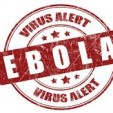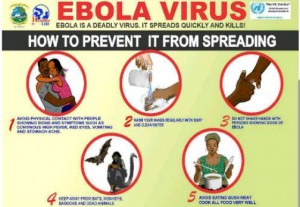Ebola can only be spread by infected people who show symptoms, the Centers for Disease Control and Prevention said. If an exposed person does not develop symptoms within 21 days of exposure, the person will not become sick with Ebola, according to the CDC.
“There is no risk to people who have been in contact with those who have been sick with Ebola and recovered, or people who have been exposed and have not yet shown symptoms,” the CDC’s director Dr. Thomas Frieden explained.

How Ebola Is Spread: Once a person is infected, the CDC said there are several ways Ebola can spread to other people:
- Touching the blood or body fluids of a person who is sick with or has died from Ebola, including but not limited to urine, saliva, feces, vomit and semen. To become infected with the virus, you would need to get some of the ill person’s bodily fluids into your mouth, nose, or eyes, or into your body via a cut or a needle stick. Doctors say that there is no evidence anyone has ever been infected via sweat.
- Touching objects contaminated with the virus, like syringes or other medical equipment
- Touching infected animals, by contact with blood or fluids or infected meat
- A cough from a sick patient could infect someone close enough to be sprayed with droplets of mucus or saliva. People dealing with anyone who may be ill are told to stand at least three feet away, preferably six. Being within three feet of a patient for a prolonged time, without wearing protective gear, is considered direct contact, according to Frieden.
- Direct contact through broken skin or mucus membranes is key, as the CDC said Ebola cannot be spread through the air (the virus doesn’t drift through the air like germs that cause measles or tuberculosis) or by water or food. However, that may not have been the case in some cases in Africa, where Ebola may have been spread through the handling of wild animals hunted for food and contact with infected bats, according to the CDC.


